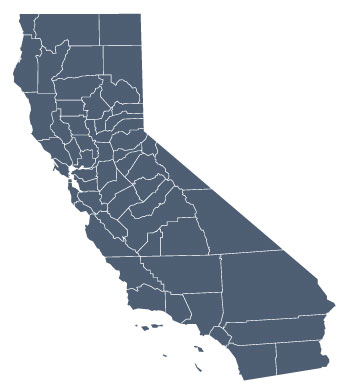
Land and Labor Acknowledgments
The Research and Planning Group for California Community Colleges, more commonly known as The RP Group, acknowledges the land and labor that built this nation. Our land and labor acknowledgments aim to increase understanding and recognize the lasting impacts of colonialism, enslavement, and exploitation. We honor the original inhabitants of this land and the unpaid labor of People of Color, whose contributions continue to shape our society. This commitment reflects our ongoing efforts to educate ourselves and the broader community on historical and contemporary issues to better inform our equity-focused efforts.
 |
We at The RP Group commit to:
-
Support Native American and other students of color through research and professional development designed to identify and address their needs
-
Support and encourage our Board and staff in learning about the history of Native Americans and other peoples of color in California and this country and how it affects us today
|
Land Acknowledgment
The RP Group acknowledges that in serving community colleges across California, we operate on the unceded land of over 200 tribal nations. We honor California’s first peoples for their resilience, strength, and continued contributions, particularly in education. Indigenous people are not relics of the past—they are here today, actively sharing their expertise and making significant contributions.
At our events, we will share information about the past, present, and future of the tribes that have historically and still live on the land where the event is taking place for our in-person events and the land where the presenters are located for our virtual events.
Labor Acknowledgment
The RP Group acknowledges the historical institutionalized policies and practices of the United States to exploit human labor along racial caste lines, beginning with enslaved Africans stolen from their homelands as the labor force to build the colonies, and continuing through the legacy of unfair labor practices imposed upon immigrant and migrant people.
These exploitative race-based labor policies and institutional strategies have negatively impacted Indigenous peoples, Chinese immigrants, and migrant workers from Mexico, Central and South America, and the Philippines. In acknowledging our collective debt to their labor and sacrifice, we uplift and celebrate the significant contributions of these communities and their descendants, who continue their legacy of innovation and advancement of racial equity.
At our events, we will share additional information about the history and impact of one of the groups that were exploited for their labor. This information is not meant to be a complete history of their plight or contributions, but to raise awareness and facilitate respect. To see our acknowledgments of these honored groups, please click here.
We want to share ideas for how you can further your support of Indigenous peoples, as well as learn more about the labor history of the group(s) we highlighted today. We encourage everyone to learn more about the land you now occupy and seek ways to support your local tribes with more than just words. We also encourage you to learn more about the labor history of the groups mentioned here. While there are many things you can do, we want to highlight the following ideas:
-
Relearn the stories of Christopher Columbus, slavery, and immigrant and migrant history
-
Recognize and celebrate heritage months
-
Donate to programs and charities that support these communities
-
Read, watch, and engage in content created by these communities
-
Talk about issues and causes that affect these communities
-
Advocate for students, employees, and local communities of color
-
Support businesses owned by people of color
-
Seek to understand what it means to decolonize our practice
To learn more about our approach to developing and presenting our land and labor acknowledgments, please click here.
Resources
Land acknowledgment
Labor acknowledgment